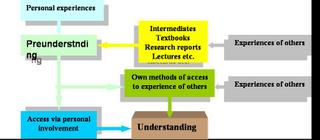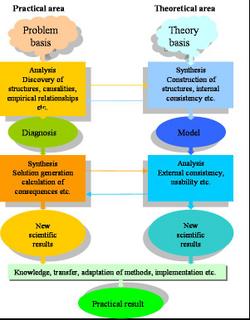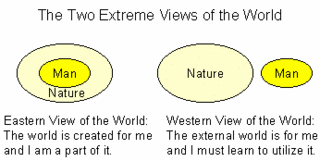The destruction of the Buddha statue at Afghanistan, the Babari Mosque at India in response three Hindu temples were destructed at India and many Hindu temples at Pakistan, the Ram temple in Babar’s period at India and so on make me to wondering that what is the origin of all this iconoclasm? I couldn’t figure out that what is the reason behind all those motives and spiritual thoughts? However I can define these motives in my own word that we could be in dark and worshipping and praying unreasonable blind faith. There is one more possibility by differentiating and one religion from another to show and market human being that this religion is better than another.
I born in Nepal and I grew up in idol God worshipping which are images and statues of Gods however an idol represent on the beholder believe. The word idol came from the Greek work eidos that include guide, wise, wisdom, guise, wit, view, visa, vision, advice, clairvoyance, idea, history and story. Every religion trying to find other religion’s wrong. Christian prostrate themselves in front of the images of crucified Jesus, Mary and other saints however when Hindus and Buddhists prostrate themselves in front of images of their gods images, statues or saints then they say that it is wrong. This makes confuse in distinction between their arguments. Muslims have taken one further step in their religion for images which are banned all of them. They are at least in harmony by rejecting all images. The definition of the word 'idol' from the American Heritage Dictionary on the web:
1. An image used as an object of worship, a false god
2. One that is adored, often blindly or excessively
3. Something visible but without substance
There is one crucial issue arise that those who abuse idol worshipping. Rajiv Srinivasan has stated his view behind idol and images worshipping in his word that those who worship idol are not under the belief that the idol or images are the fact God of choice. They are perfectly aware that it is only a representing of an idea so that they do not worship it however the idea behind it. They only use it as a means of concentrating their energies in prayer. He also stated that this distinction seems lost on the average iconoclast. Sometimes, desperate people, when their backs are to the wall facing defeat, death or disintegration, make a miraculous recovery. Examples are found among warriors, businessmen, athletes, people on their death bed, prisoners (McCain 1999), former addicts of one kind or another, etc.
It is fairly true that the image does not have any inherently meaning however we can imply to gain meaning through a process of transmutation. Rajiv Srinivasan again states his view that the image, through the ritual of consecration, gains something of the personality of the divine, which the image always had the potential to carry. This is the theory in Hinduism, because of Advaita Vedanta, Absolute Monism, whereby everything, every living and inanimate object, is suffused with the spirit of the one.
The idol is transmuted from its base material to a vehicle for the power of the deity, a point of focus for the energies of the worshipper. R. Srinivasan also put point that the transmutation of objects happens all the time. For example: Let us take a plain paper which has no special divinity associated with it. When it has been printed with certain text and word like Gita, Dharmapad, Bible, Koran and so on in the same paper then it becomes holy book. In this case the holy book is also an idol. Especially as it is believed to be the literal truth, the word of God, and that no word in it may be altered. This can fairly suggest that every religion worship idols who put their blind faith in an object (paper with print marks on it) that has no intrinsic divinity.
If somebody asks a Christian or a Muslim believer about the idol worshiping, they will give simple answer that it is obviously irrelevant and disgusting. Nobody will give a truly logical answer. They think so simply because their holy books say so God is supposed to have spoken the words in their books that is a final answer.
Let us take recent bloody riots in Pakistan and Afghanistan after the story, which appeared in Newsweek's May 9 edition, claimed that interrogators at the U.S. detention centre in Guantanamo Bay, Cuba, flushed a Koran, the Islamic holy book, down the toilet. The news led to violent protests across the Muslim world, the deaths of 15 Afghans and the injuries of 100 others. Muslim scholars recently denied reports that leaders threatened a holy war against the United States if the alleged interrogator is not punished. Together with they have made sacred other object too. I always remember a few years ago there was news in Zee television (Indian Channel) that there was a religious riot in Bangalore because the municipal corporation knocked down a wall at a mosque. The wall had been built by encroaching on to public land. The very wall of the mosque had somehow acquired divinity!
At Somanath, Bamiyan, Benares, Goa, Semites tried to destroy Hinduism and Buddhism by destroying the physical manifestations of the ideas. Thus, in a bizarre way, they themselves have become crypto-idolaters, for they are the ones who pay attention to the material objects without careful attention to the abstract truths embodied in them which is blind hatred instead of blind faith however in principle the same thing (Rajiv Srinivasan, 2000).
Now, let us move our point in images god. Richard Davis who has explained about the images in three primary functions in his book “Lives of Indian Images” which is as follow:
"first, for the instruction of the unlettered, who might learn from them as if from books; second, so that the mystery of the Incarnation and the examples of the saints might remain more firmly in our memory by being daily represented to our eyes; and third, they excite the emotions, which are more effectively aroused by things seen than by things heard.".
The conclusion would be the image is not essential by itself however that it represent is important. Let us move on another point that more possibility by differentiating and one religion from another to show and market human being that their religion is better than another.
When we go market to buy shampoo, we can see different branded shampoo however one brand would be our main choice. In market, the shampoo vendor lies about the shampoo and its brand to create its market. Suppose, somebody switch brand. In the same way, I may be very loyal or swear by my religion and may even sincerely wish to change my religion to others because I have bought brand so that brand is very powerful force in marketing.
Similarly, we can take in Hinduism and Buddhism in Southeast Asia. When Buddhism arrived after Hinduism, it differentiates from the Hinduism in certain area in some dramatic way. The Sikh claim on the visible signs of their religion. It was done on purpose to ensure that Sikhs are differentiated from Hindus, Buddhist and Muslims immediately. Similarly, the Muslim insistence on beards, on distinctive clothing, etc are at least partly determined by the need to create an in-group/out-group dichotomy. In Christianity: Catholic and Protestant, in Muslim: Shaia and Sunni however let us take good historical example. In Egyptian religion serpent was an important deity when Christian trying to take place in that region. Christian declared that idols ipso facto were bad however the pre Christian people had already idols. In that situation Christian used very good tactic that truth by repeated assertion.
When Islam came in that region, they used another marketing differentiator: Look and observe in which they strictly prohibition on all images and whatever kind. This tactic certainly differentiates Islam from its main competitor which is Christianity because the latter allows for images. Thus the Islamic prohibition on all images can be seen as a sensible marketing tactic. Similarly, Marxist brought his idea which reject God and of course differentiates themselves than religion. They didn't rule out images in stead they also copied everything else that Christianity has. Their church, their schism, their protestants, their pope, their holy book, their prophets, their martyrs, their satan, their missionaries: namely, the
Soviet Communist Party, the Russo-Chinese split, the Chinese Communist Party, Mao, Das Capital, Marx and Engels, Che Guevara, America, the CPI-M. The comparisons are striking. Obviously, this is also the prime reason that the Vatican collaborated strongly with the CIA to destroy the USSR: it was literally a new crusade for the glory of Christ's empire on earth (Srinivasan, 2000). For example, if a new religion comes along now, its supporters may try to differentiate themselves from Hinduism, Buddhism, Christianity, Islam, Communism by adopting some new dogma and some new method of smearing themselves as the Chosen Ones.
 the next phase of research project.
the next phase of research project.  l and theory based approach.
l and theory based approach. 
